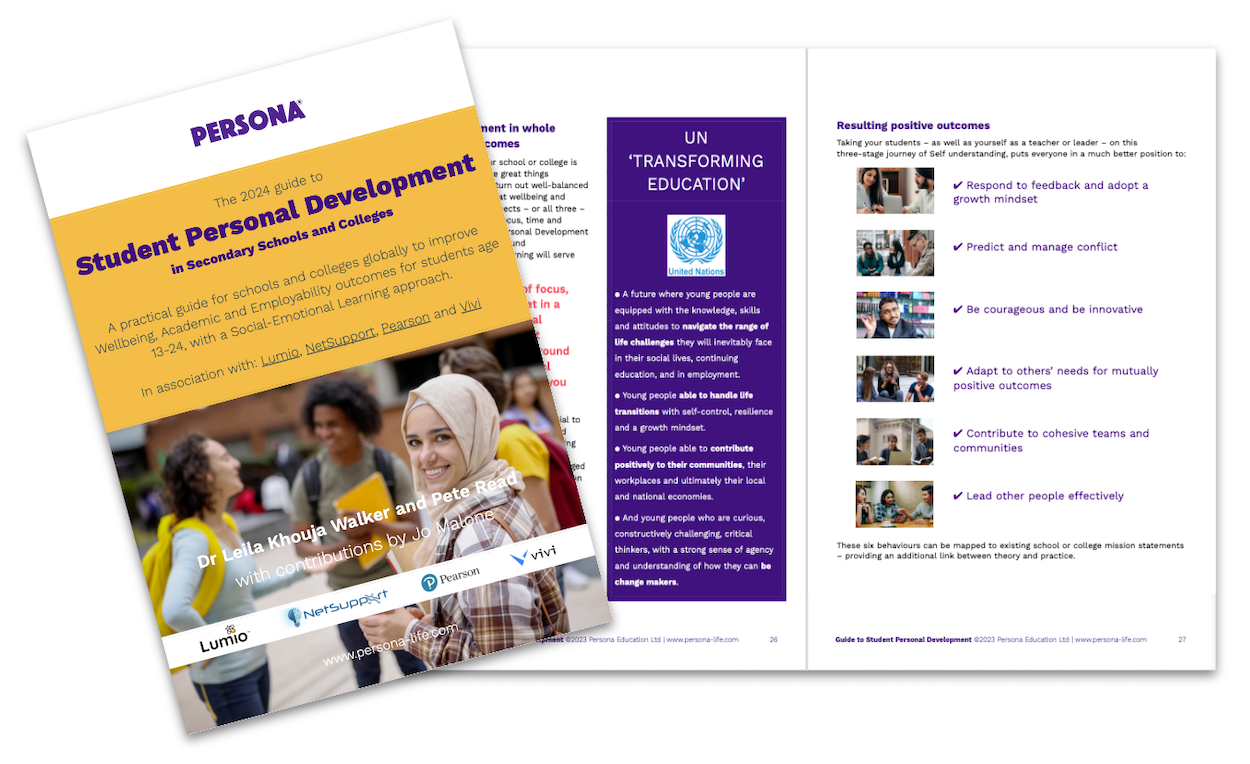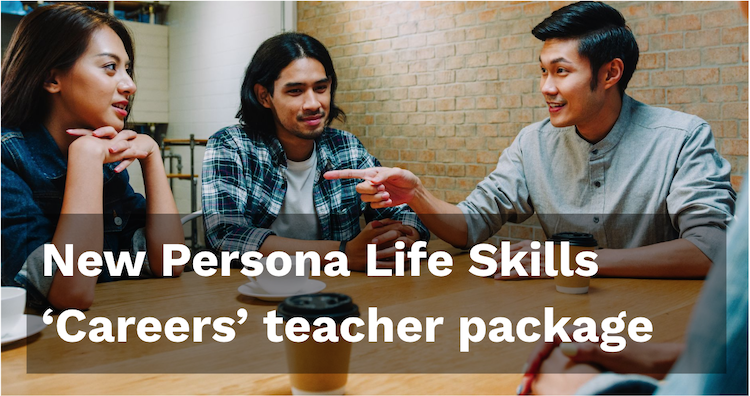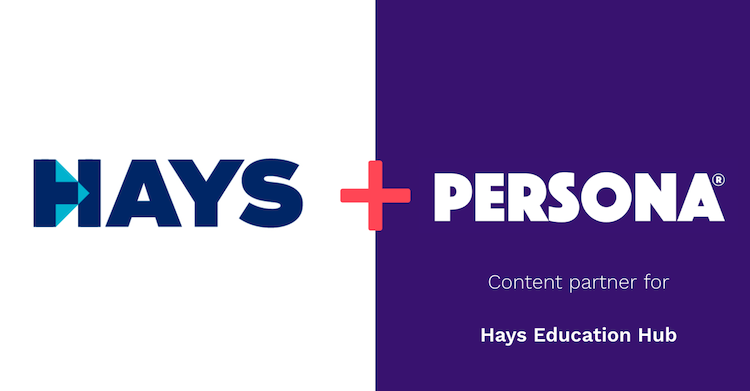It’s time to press the reset button on PSHE

PSHE – Personal, Social, Health and Economic education – is a subject taught in schools in the UK and in many international schools which follow the English curriculum. Equivalents in other curricula may be known as Personal Development, Character Education, Life Skills, Advisory, or Spiritual, Moral, Social & Cultural development (SMSC).
8-Dec-21
By Jo Malone, Director of Education
I feel so sorry for PSHE. It is exhausted, often ignored or maligned, and has a deep identity crisis. It suffers from chronically low self-esteem when compared with other areas of the curriculum, especially for older students in secondary education. It becomes the repository for anything and everything a school does not know where to put.
SMSC? “Give it to PSHE!” Prevent Duty? “They can cover that in PSHE.” The OFSTED report on sexual abuse? “The PSHE team will pick that up!” Student voice? Student council? Rights Respecting Schools Award? Talking about the UN Sustainable Development Goals? PSHE absorbs them all. And that’s before we even start on sex, alcohol and drugs!
Oh, and you have to deliver all this in 30 minutes per week, with a team of non-specialist teachers brought in from other subjects... and did I mention there’s no budget..?
Of course this is not the case in every school, and there are pockets of really good practice and impressively dedicated people out there supporting teachers to deliver quality PSHE. But not enough. Not even close.
It is remarkable really, that we are in this situation. Evidence from the UK Department for Education and PSHE Association shows that when delivered well, PSHE can:
- Help students manage their lives
- Equip them with the mental tools needed for modern life
- Prepare them for the ever changing world of work
- Support them with physical and mental wellbeing
- Help them to be better citizens
- Improve behaviour
- Improve academic attainment
Wow!
The Department for Education itself has this to say about PSHE:
"The evidence shows that PSHE education can improve the physical and psychosocial wellbeing of pupils. A virtuous cycle can be achieved, whereby pupils with better health and wellbeing achieve better academically."
With these outcomes you could be forgiven for thinking we should have policy makers falling over themselves to put PSHE front and centre, the Department for Education diverting funds to invest in this critical area, plenty of quality Initial Teacher Training and Continued Professional Development on PSHE, school leaders clamouring to give this important area sufficient curriculum time...
Bewilderingly, the opposite is true. It’s a policy non-starter, chronically underfunded. A PSHE Association paper on teacher training makes depressing reading. PSHE is often poorly led: sensitive and important topics taught by untrained and under-confident teachers who have had the subject ‘dumped’ on them, and seemingly way down the list of priorities for most school leaders.
It’s time to press the reset button on PSHE.
What about wellbeing?
Wellbeing is now at the top of most education agendas. We know that we are in the midst of a youth mental health crisis not only in the UK but globally, and especially in the Middle East and Asia. This is not solely a result of the pandemic, although that has surely exacerbated the situation.

In the UK, mental health support for young people was already patchy, due to underfunding, staff shortages, and longer-term trends in deteriorating mental health. While PSHE cannot do very much as a ‘sticking plaster’ to support young people who are already in crisis, there is no doubt that good PSHE provision is an effective ‘vitamin’ – a preventative tool.
I agree with Jenny Barksfield from the PSHE Association, that when done well:
"PSHE education can promote pupils’ wellbeing by developing healthy coping strategies, by developing pupils’ understanding of their own and others’ emotions, and by providing an opportunity to talk openly about these issues (which helps to break down associated stigma). Additionally, such lessons can be a vehicle for providing pupils who do develop difficulties with strategies to access the support they need, as well as helping pupils to recognise and support friends who are facing challenges."
Who is calling for quality PSHE?
In the UK, statutory status for PSHE education is supported by:
- 85% of business leaders
- 88% of teachers
- 92% of parents
- 92% of pupils
- The Children’s Commissioner
- The Chief Medical Officer
- The National Police Chiefs’ Council lead for child sexual abuse
- Public Health England
- 100 leading organisations including the Association of Police and Crime Commissioners, the NSPCC, the Children’s Society and Barnardo’s
- Leading Parliamentarians from across the political spectrum, including the Commons Education, Home Affairs and Women & Equalities Committees, the Joint Committee on Human Rights and the chairs of the Commons Health & Business and Innovation & Skills Committees.
And the young people involved in a Foundation for Education Development Young Learners Consultation on 2-Nov-21 called for life skills to be taught in every school.
It’s time to press the reset button on PSHE: Six recommendations for schools and policy-makers
Ofsted’s report on PSHE provision in 2013, tellingly entitled Not Yet Good Enough, concluded that the subject was not taught rigorously, there were too many curriculum content gaps, and teachers lacked the confidence to deliver sensitive topics in meaningful ways. The Department for Education’s own data suggest that the picture has rapidly deteriorated since then.

While most of PSHE remains non-statutory it will remain the curriculum poor relative in terms of funding, resourcing, staff training and oversight.
Statutory status for PSHE education would protect against this and ensure that teachers are given the training and curriculum time they need to realise the subject’s potential. It would also bring expectations on state-funded schools and academies into line with their independent sector counterparts, who tend to manage PSHE much more effectively, according to the PSHE Association.
Recommendation no.1: Make all aspects of PSHE statutory
Other recommendations relevant from individual schools to central government, based on research into quality PSHE provision, include:
2. Create lessons which are interactive and engaging
We need investment into resources and training so that PSHE lessons can be less about delivering the knowledge alone but much more about engaging with the material: exploring, analysing, assessing and mitigating risk, developing skills, and asking as many questions as you answer. Resources used should be proven to have impact, and training should give teachers the confidence to engage students in discussions and explorations around difficult topics.
3. Develop student agency
We need young people to advise on what their needs are, and what works for them in terms of PSHE outcomes. Best practice is to involve student voices in curriculum design and pedagogical approach, as well as assessment. Too often the student voice is tokenistic, and this is a massively underused resource. Students should be central to making PSHE more relevant, advising on what will work and what will not.
4. Ensure clear objectives, outputs and outcomes
Before you play another video, before you do another slide show, be sure you know what you want your students to be capable of as a result of the lesson(s). It is not solely about learning content – we need to be sure we are equipping young people with the attitudes, knowledge, skills and tools to go out and immediately apply their learning in the real world. This may involve being creative and innovative with how PSHE is evaluated: for example, using a triangulated approach of pupil self-reporting, staff observations and data.
5. Bring the whole community onboard
You will only achieve a certain amount on your own, even if you are a brilliant teacher or the PSHE lead. You absolutely need the support of school senior leadership, your teacher peers, parents and the wider community. These can quickly become your ambassadors: parents and carers, governors, trustees, local community leaders, and organisations working in areas related to PSHE in your locality such as health services, police and businesses.
6. Ensure your approach is inclusive
It is easy to fall into the trap of teaching to the majority, and sidelining some of your student cohort. You need to see every single whole child when delivering quality PSHE, including their cultural and religious background, their socio-economic context, and how they identify. Central to this inclusive approach is a positive teacher-student relationship and positive peer-to-peer relationships. Putting time and resources into developing open, inclusive and positive learning environments for PSHE will be a sound investment.
Other blogs on related themes:
Relationships and sex education
Catch-up? Wellbeing! Wellbeing! Wellbeing!
Relationships and the classroom
Life skills: The missing link to wellbeing
Persona Education offers free access to its Persona Life Skills e-learning platform for secondary schools and colleges interested in developing their pupils’ social & emotional life skills, to boost wellbeing and employability.
About the author: Jo Malone is a global education expert, with over two decades experience in teaching, e-learning, dialogic education and teacher training. A social and emotional learning (SEL) and PSHE thought-leader, she is Director of Education at the Bristol based edtech company Persona Education Ltd, providing onboarding, guidance and support for schools and colleges using the Persona Life Skills personality insights life skills e-learning app. www.persona-life.com



